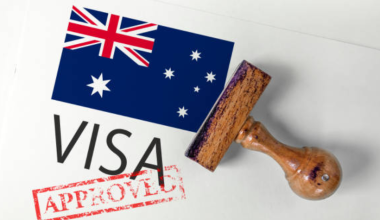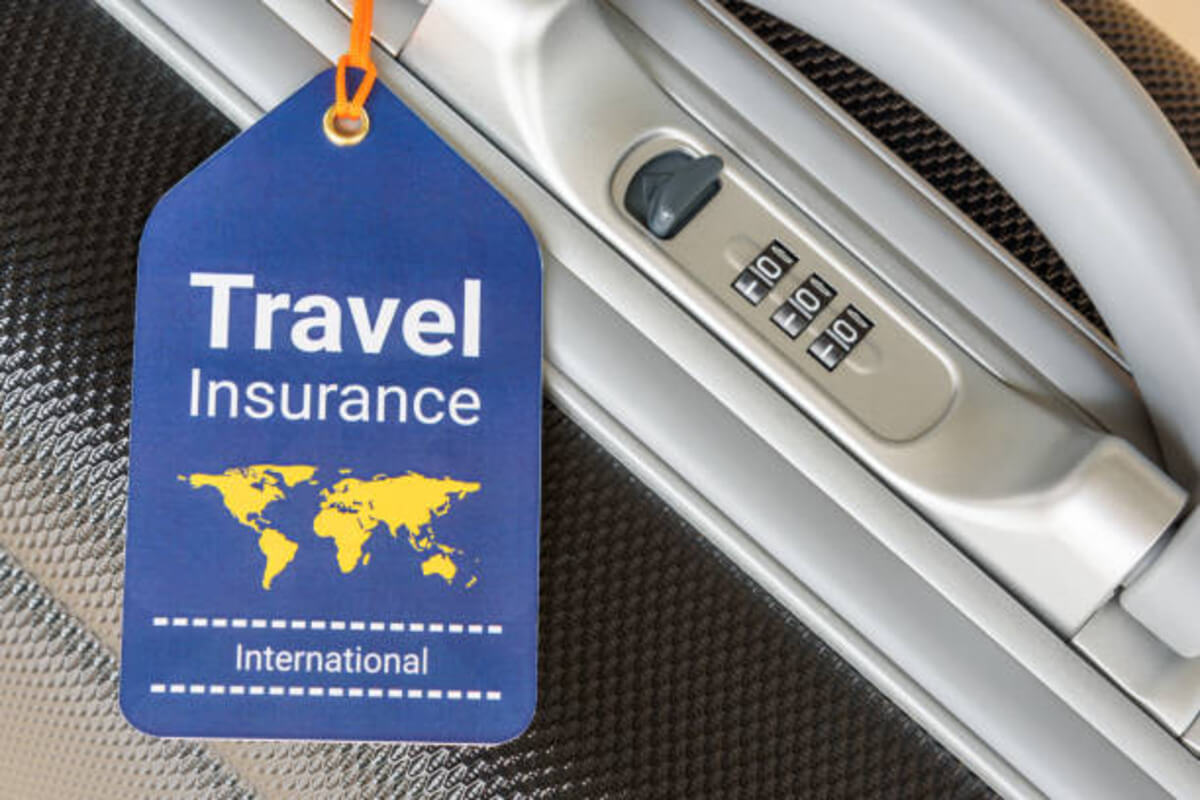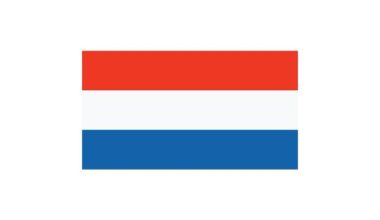Would you like to earn more money in a thriving economy? It Might Be A Good Idea To Move To The Netherlands!
Professionals, entrepreneurs, and workers seeking new opportunities find the Netherlands to be one of Europe’s most attractive destinations.
This country offers high wages, a strong economy, and a great work-life balance, making it a top choice for immigrants seeking a good salary and high quality of life.
Aside from its booming industries, such as tech, finance, and logistics, the Netherlands is known for its excellent healthcare and social welfare systems, welcoming business environment, and strong worker protections.
In addition to its strategic location in Europe, the country is a hub for international companies, meaning job opportunities are plentiful.
Why a Work Visa is Important for Non-EU/EEA Citizens
Working in the Netherlands legally requires a work visa if you are not from the EU/EEA or Switzerland. In accordance with your profession, skills, and experience, you may be eligible for a different visa option from the Dutch government.
Getting the right visa allows you not only to work, but also to reside and even become a Dutch citizen.
Our next step is to take a closer look at the various types of work visas available in the Netherlands.
Types of Work Visas in the Netherlands
1. Highly Skilled Migrant Visa
A visa like this is your golden ticket to earning a lot of money in the Netherlands if you have specialized skills and a high salary.
This visa is designed to allow recognized Dutch employers to hire non-EU workers quickly in fields like IT, engineering, and finance. The best part is that It’s not necessary for you to apply yourself, your employer will take care of it!
Requirements:
-
An employment offer from a recognized company
-
As of 2024, the minimum salary requirement ranges between €3,672 and €5,331 per month.
-
Extensive experience and relevant qualifications
2. EU Blue Card
Highly skilled professionals who wish to work in the Netherlands and potentially move around Europe can also apply for the EU Blue Card. Although it is a bit stricter than a Highly Skilled Migrant Visa, it offers longer-term flexibility.
Requirements:
-
An offer of employment with a Dutch company for at least one year
-
The minimum monthly salary is €5,867 as of 2024.
-
Bachelor’s degree or higher from a recognized university
3. Startup Visa
Is your business idea innovative? Through the Startup Visa, entrepreneurs can move to the Netherlands and launch their businesses with the assistance of a facilitator (business mentor).
As soon as your startup succeeds, you can apply for a self-employed visa and earn in the Dutch market.
Requirements:
-
A well-crafted business plan
-
Collaboration with an approved facilitator
-
Financial proof
4. Essential Startup Personnel Visa
Startups in the Netherlands often require top talent to scale their businesses. If you’re a skilled worker looking to join a Dutch startup, this visa could be your ticket in. Due to the lower salary threshold, startups are able to attract international talent more easily than with the Highly Skilled Migrant Visa.
Requirements:
-
A job offer from a Dutch startup
-
A salary package that includes equity compensation
-
Minimum salary of €2,801 per month (2024)
5. Intra-Corporate Transfer (ICT) Visa
The ICT Visa makes transferring to a Dutch branch of a multinational company seamless. Managers, specialists, and trainees seeking international experience while earning in the same company can benefit from this visa.
Requirements:
-
Employment with a company outside the EU for at least 3 months
-
Managerial, specialist, or trainee positions in Dutch branches
-
Minimum salary requirement (varies by role)
6. Seasonal Work and Short-Stay Work Visas
Do you want to earn money in the Netherlands without making a long-term commitment? Workers in agricultural, hospitality, and tourism industries are permitted to work for up to 24 weeks on a seasonal basis or on a short-stay visa.
Requirements:
-
A job contract with a Dutch employer
-
Work permit approval from the Netherlands Employee Insurance Agency (UWV)
-
Proof of sufficient income and accommodation
Every type of immigrant can get a work visa in the Netherlands, whether you’re an expert, an entrepreneur, or a seasonal worker. Choosing the right visa is the first step to building a successful career in one of the best economies in the world.
General Requirements for a Netherlands Work Visa
You must meet specific work visa requirements before you can begin earning in the Netherlands. However, there are some general requirements regardless of visa type:
1. Job Offer from a Recognized Employer
Dutch work visas require a job offer from an employer recognized by the Dutch Immigration and Naturalization Service (IND). The government has approved these employers to hire non-EU workers as “recognized sponsors”.
Employers who are not recognized sponsors may have to go through additional procedures in order to obtain your employment authorization.
2. Minimum Salary Thresholds
Applicants for a work visa in the Netherlands are required to earn a minimum salary to ensure they are earning a competitive wage. You will need to meet a certain threshold depending on your visa type, your age, and your level of expertise.
Although 2025 will be increased by a certain percentage, here are some examples:
-
Highly Skilled Migrant Visa:
-
Under 30 years: €3,672 per month
-
30 years and older: €5,331 per month
-
-
EU Blue Card: €5,867 per month
-
Essential Startup Personnel Visa: €2,801 per month
-
Seasonal Workers: Must meet the minimum Dutch wage
3. Educational Qualifications and Experience
In addition to a bachelor’s degree or higher, highly skilled migrant visas and the EU Blue Card require a university degree. A specific number of years of work experience in the applicable field may also be required for some visas.
4. Proof of Accommodation and Health Insurance
You must prove that you have a place to live in the Netherlands before moving there. Providing a rental contract or assistance from your employer may be necessary.
Furthermore, health insurance in the Netherlands is mandatory. After arriving in the Netherlands, you must register for Dutch health insurance within four months. International insurance may be required until then.
5. Background Checks
Public safety requires applicants to undergo criminal background checks. Criminal records may affect your visa approval. Depending on your nationality, you may also have to undergo a medical examination for a visa.
Application Process
There are several steps involved in obtaining a Netherlands work visa. To help you navigate the process, here is a step-by-step guide.
Step 1: Secure a Job Offer
-
Obtain a work visa sponsorship from an employer in the Netherlands.
-
Make sure the employer is a recognized sponsor or willing to apply for sponsorship.
Step 2: Employer Submits the Application
-
Most work visas are applied for by your employer through the IND.
-
It is necessary to apply for some visas yourself (like the Startup Visa).
Step 3: Gather Required Documents
You’ll need to provide:
-
A valid passport
-
Your employment contract
-
Proof of salary meeting the minimum threshold
-
Educational certificates (if required)
-
Proof of accommodation
-
Health insurance coverage
-
Background check documentation
Step 4: IND Processing & Decision
-
Additional documents may be requested by the IND during the review of your application.
-
It typically takes 2–6 weeks for highly skilled migrants to process their visas, and 90 days for other types of work visas.
Step 5: Collect Your Visa & Move to the Netherlands
-
To enter the Netherlands, you’ll need a temporary visa (MVV).
-
Within two weeks of arriving, collect your residence permit from the IND.
Processing Fees
Visa application fees depend on the visa type:
Highly Skilled Migrant Visa: €350–€380
EU Blue Card: €350
Startup Visa: €350
ICT Visa: €350
Work Visa vs. Residence Permit
Work visas and residence permits are often confused in the Netherlands. Essentially, they differ in the following ways:
| Work Visa | Residence Permit |
|---|---|
| Temporary visa that allows entry into the Netherlands | Permit for legal stay and work for a long period of time |
| Issued before you arrive | Collected after arrival |
| Non-EU workers are required to have this document | It is required for stays exceeding 90 days |
When and How to Apply for a Residence Permit
-
IND usually processes your residence permit application automatically if you need a work visa.
-
You must pick up your residence permit at the IND office after arriving in the Netherlands.
-
Permits must be renewed every few years in some cases.
Work visas allow you to earn money in the Netherlands, but residence permits allow you to stay long-term. You may eventually become a Dutch citizen or a permanent resident!
Benefits of Working in the Netherlands
1. High Quality of Life
In terms of work-life balance, safety, and overall well-being, the Netherlands consistently ranks high. Here are a few reasons why:
-
Shorter Workweeks – Full-time employees generally work 36–40 hours a week, and many companies offer four-day work weeks.
-
Paid Holidays & Leave – Most companies offer at least 20 vacation days a year (often more), as well as paid sick days and paternity/maternity leave.
-
Excellent Public Transport – Transit systems, buses, and bicycle lanes are well-connected for easy commuting.
-
Diverse & Inclusive Society – Dutch workplaces are international friendly, with English as the primary language.
2. Social Security Benefits
Working in the Netherlands gives you access to a strong social security system that provides:
-
Health Insurance Coverage – Dutch health insurance offers world-class health care, and employers often assist with enrollment.
-
Unemployment Benefits – Up to 24 months of unemployment benefits are available if you lose your job.
-
Pension System – Employees contribute to both state and private pension plans, ensuring financial stability after retirement.
3. Pathway to Permanent Residency & Citizenship
Are you interested in staying in the Netherlands for a long period of time? You can become a citizen and a resident of the country by working there:
-
If you have lived and worked legally for 5 years, you can apply for permanent residency.
-
A naturalization application can be submitted after 5 more years (or 10 years in total).
-
Having Dutch citizenship gives you the freedom to live and work anywhere within the European Union!
Challenges & Common Mistakes to Avoid
1. Visa Rejections & How to Prevent Them
Your plans can be ruined if you receive a visa rejection. Reasons for this include:
-
Incomplete application – Missing documents or incorrect forms
-
Not meeting salary requirements – Always check the latest salary thresholds
-
Employer not being a recognized sponsor – Make sure your employer is IND-approved
What can be done to prevent it?
Ensure that your documents are accurate, work with an IND-recognized employer, and apply well in advance of your intended start date.
2. Employer Sponsorship Issues
Employers who do not meet visa requirements or are not recognized sponsors often cause problems for workers.
The solution?
Verify on the IND website that your employer is a recognized sponsor before accepting a job. Those who aren’t must go through extra steps to sponsor you.
3. Legal Obligations After Obtaining the Visa
Once you get your work visa, you must:
-
You will receive a citizen service number (CSN) when you register with the municipality (gemeente).
-
Take out Dutch health insurance – Must be arranged within 4 months of arrival.
-
Follow visa conditions – If you change jobs, you need to apply for a new visa with your new employer.
A violation of these rules could lead to fines, visa cancellations, or even deportation.
Conclusion
Those seeking better career opportunities and a high quality of life should consider moving to the Netherlands. The Netherlands offers an excellent work-life balance and a clear path to residency, making it a life-changing place to work.
Need More Information?
-
Take advantage of expat communities and professional networks for support.
-
Visa issues can be avoided by planning early!
Ready to begin your career in the Netherlands? Now is the time to get started!






1 comment
Please help me I will like to work in Netherlands